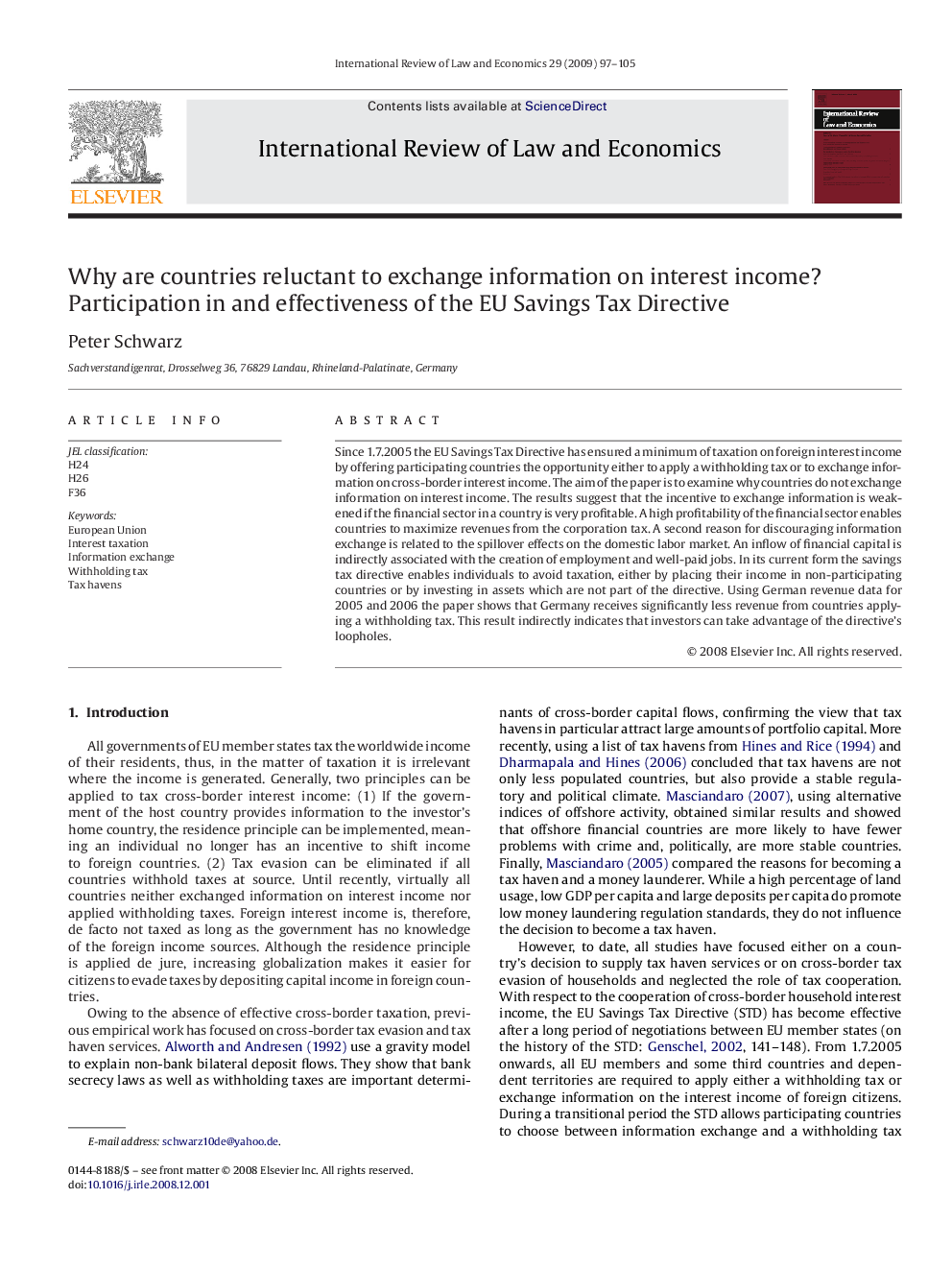| کد مقاله | کد نشریه | سال انتشار | مقاله انگلیسی | نسخه تمام متن |
|---|---|---|---|---|
| 5085859 | 1478083 | 2009 | 9 صفحه PDF | دانلود رایگان |
عنوان انگلیسی مقاله ISI
Why are countries reluctant to exchange information on interest income? Participation in and effectiveness of the EU Savings Tax Directive
دانلود مقاله + سفارش ترجمه
دانلود مقاله ISI انگلیسی
رایگان برای ایرانیان
کلمات کلیدی
موضوعات مرتبط
علوم انسانی و اجتماعی
اقتصاد، اقتصادسنجی و امور مالی
اقتصاد و اقتصادسنجی
پیش نمایش صفحه اول مقاله

چکیده انگلیسی
Since 1.7.2005 the EU Savings Tax Directive has ensured a minimum of taxation on foreign interest income by offering participating countries the opportunity either to apply a withholding tax or to exchange information on cross-border interest income. The aim of the paper is to examine why countries do not exchange information on interest income. The results suggest that the incentive to exchange information is weakened if the financial sector in a country is very profitable. A high profitability of the financial sector enables countries to maximize revenues from the corporation tax. A second reason for discouraging information exchange is related to the spillover effects on the domestic labor market. An inflow of financial capital is indirectly associated with the creation of employment and well-paid jobs. In its current form the savings tax directive enables individuals to avoid taxation, either by placing their income in non-participating countries or by investing in assets which are not part of the directive. Using German revenue data for 2005 and 2006 the paper shows that Germany receives significantly less revenue from countries applying a withholding tax. This result indirectly indicates that investors can take advantage of the directive's loopholes.
ناشر
Database: Elsevier - ScienceDirect (ساینس دایرکت)
Journal: International Review of Law and Economics - Volume 29, Issue 2, June 2009, Pages 97-105
Journal: International Review of Law and Economics - Volume 29, Issue 2, June 2009, Pages 97-105
نویسندگان
Peter Schwarz,